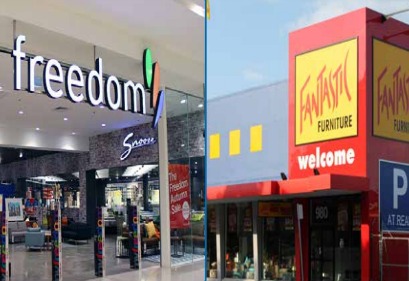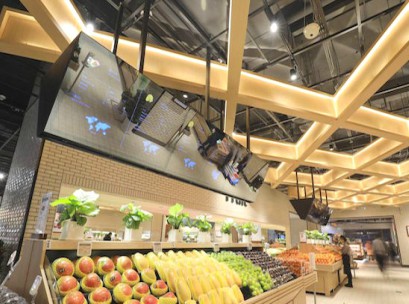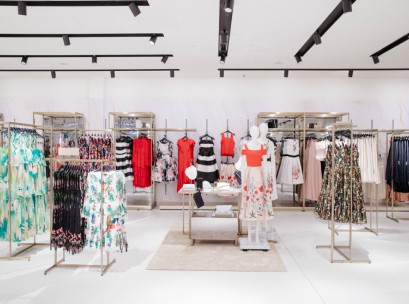 Week one into the New Year and it’s already been tumultuous for retailers across the globe.
Week one into the New Year and it’s already been tumultuous for retailers across the globe.
Drama continues for retail giant
To start the week, we saw the local owner of brands including Fantastic Furniture hire financial advisers specialising in helping distressed companies, as its parent company continues to battle a raft of investigations into its accounting practices.
Embattled South African Retailer, Steinhoff International, has warned that its accounting irregularities stretch back further than first thought, with the conglomerate forced to restate its accounts for 2015 and potentially prior years.
Steinhoff said the accounting irregularities which are the subject of an internal review and PwC investigation also affect the consolidated financial statements of Steinhoff Investment Holdings Limited by virtue of its ownership of certain European subsidiaries until 1 April 2016.
Local subsidiary Steinhoff Asia Pacific – which operates a number of high performing retail brands in Australia and New Zealand including Freedom, Fantastic Furniture, Best & Less, Snooze, Harris Scarfe, Plush, OMF, Postie and Bay Leather Republic – says it is financially strong but that it has appointed Minter Ellison and Ferrier Hodgson to provide legal, financial and corporate advice.
The company said the appointment was supported by its local lenders, and was a prudent step while parent company Steinhoff International Holdings works through “significant uncertainty”. Later in the week saw Steinhoff’s chief financial officer (CFO) Ben la Grange step down to “focus on the preservation and procurement of liquidity” for the group.

Pay changes, pot shops and ivory bans
During the week, retailers were warned to ensure they are paying employees correctly in the new year, amid increases in overtime pay in the Retail and Fast Food Awards coming into effect over the next week.
Under the changes retailers and restaurants will be required to pay around 25 per cent more in overtime per hour to casual employees from the first full-pay period of 2018.
Elsewhere, a ban on ivory sales in China, the world’s largest importer and end user of elephant tusks, took effect with wildlife activists calling it a vital step to reducing the slaughter of the endangered animals. Under the ban, China’s 172 ivory-carving factories and retail outlets will also close. Some factories and shops started closing in March. Illegal ivory supplies have also been rife in unlicensed shops and online across China.
Meanwhile customers lined up early to purchase recreational marijuana legally for the first time in California. New Year’s Day brought broad legalisation some two decades after the state was the first to allow pot for medical use.
Tech time
There was no shortage of technology launches during the first week, with retailers kicking off the New Year with more gadgetry aimed at improving company operations.
Using Perfect Corp’s YouCam, Estee Lauder introduced mobile-based AR training for its beauty advisers internationally. Its ART (augmented reality training) is the world’s first such education program. Using interactive live streaming, it allows the company’s more than 17,000 beauty advisers to engage in real-time training and product briefings via their mobile devices.

Not to be outdone, Spanish fast-fashion retailer Zara installed a self-service kiosk at one of its stores to provide a flexible shopping experience for online customers.
Back in the US again, where an inventor released a fully autonomous shopping cart.
Designed to lead shoppers through a grocery store, the Dash Robotic Shopping Cart quickly and efficiently helps them find the items on their shopping list, which they input into the cart via an app.
The inventor, Five Elements Robotics, says using its autonomous navigation and planning software, the Dash Robotic Shopping cart will help increase revenues for store owners by ensuring the customer gets what they came for.
Also in the automated supermarket stakes, JD.com owner Beijing Jingdong Century Trade launched an offline supermarket, 7Fresh, in Beijing. Technology introduced by the supermarket includes smart shopping carts and sensor-activated product information. The smart shopping carts do not have to be pushed – they follow the shoppers around, and can even guide shoppers to the correct aisle.
Takeover time
Quiksilver’s parent company Boardriders has agreed to acquire rival Billabong International, after agreeing to acquire all of the shares in the company valued at $1.00 per share via a scheme of arrangement.
The approximately $198 million deal, if approved by shareholders, will combine two of the largest global active sports brands.
In a statement, Billabong said the scheme consideration of $1.00 per share represents an implied enterprise value of $380 million.
Further afield, British retailer Marks & Spencer has confirmed the sale and franchise of its retail business in Hong Kong and Macau to its long-established franchise partner Al-Futtaim.
Tale of several sales
Harvey Norman chairman Gerry Harvey said he was ‘realistically’ happy with the company’s Boxing Day sales, but has admitted that competition was more intense this year amid the hype surrounding Amazon and aggressive discounting by rival JB Hi-Fi Group over the last week.
The relaunch of childrenswear brand Pumpkin Patch and the addition of a marketplace offer helped deliver a ‘record-breaking’ Christmas for Catch Group.

Accessories retailer Lovisa said it has had a bumper Christmas, pre-empting its interim sales report by releasing unaudited sales for the six months ended 31 December on Friday morning.
Red Balloon founder Naomi Simson said growing demand for non-traditional gifts has delivered for the online experience retailer over the holidays.
Meanwhile Amazon said it shipped over five billion items through its Prime program worldwide in 2017, with more members signing up to the loyalty program last year than ever before.
There was better news for US department store retailer Macy’s who reported positive sales for the festive trading season, after improved sales on and offline.
But things weren’t so rosy for British icon Debenhams after it warned its like-for-like sales have dropped after flat Christmas trading.
Back home, Australia Post said it is still being inundated by parcel deliveries as online shoppers snap up the remnants of post-Christmas deals, following the busiest month in its 209-year history.
Here’s looking forward to what’s on the cards for retailers next week…





